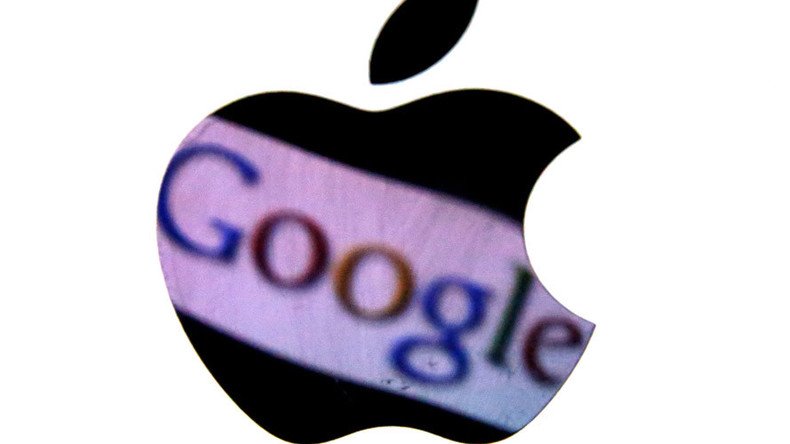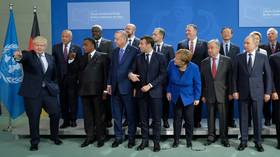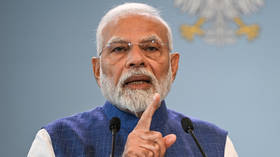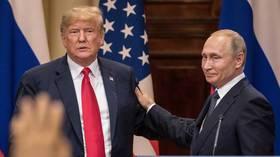‘Troubling precedent’: Google CEO rallies for Apple over FBI encryption case

In five tweets, Google’s CEO finally rallied for Apple over its encryption case with the FBI. The FBI has demanded through a court order that Apple enable the hacking of a San Bernardino shooter’s iPhone.
Google CEO Sundar Pichai said the request “could be a troubling precedent.” The tweets on Wednesday followed a chorus of privacy supporters demanding the search giant break its silence on the Apple vs. FBI case.
1/5 Important post by @tim_cook. Forcing companies to enable hacking could compromise users’ privacy
— sundarpichai (@sundarpichai) February 17, 2016
2/5 We know that law enforcement and intelligence agencies face significant challenges in protecting the public against crime and terrorism
— sundarpichai (@sundarpichai) February 17, 2016
3/5 We build secure products to keep your information safe and we give law enforcement access to data based on valid legal orders
— sundarpichai (@sundarpichai) February 17, 2016
4/5 But that’s wholly different than requiring companies to enable hacking of customer devices & data. Could be a troubling precedent
— sundarpichai (@sundarpichai) February 17, 2016
5/5 Looking forward to a thoughtful and open discussion on this important issue
— sundarpichai (@sundarpichai) February 17, 2016
Earlier in the day, National Security Agency whistleblower Edward Snowden had chimed in, suggesting Google’s silence on the tech case implied the company had already sided with the government.
This is the most important tech case in a decade. Silence means @google picked a side, but it's not the public's. https://t.co/mi5irJcr25
— Edward Snowden (@Snowden) February 17, 2016
The tweet was shared over 7,907 times and liked over 6,128 times
In another tweet, a poster suggested that one tech giant should support another.
Today would be the perfect day for Sundar Pichai (Google, CEO) to back up Tim Cook (Apple, CEO).
— Jeremiah Grossman (@jeremiahg) February 17, 2016
Pichai’s tweets are more cautious than those posted by Apple CEO Tim Cook on Tuesday, in which he wrote, “We feel we must speak up in the face of what we see as an overreach by the US government,” but that’s possibly because their businesses are different. Google’s business model is based on profiting from the data it freely collects from its users, while Apple creates products and is not as interested in its users’ data.
Apple to appeal ruling to help prosecutors unlock encrypted iPhone citing customer security https://t.co/FogmBDhCBRpic.twitter.com/viEKq18WC5
— RT America (@RT_America) February 17, 2016
The difference could also be viewed as a human rights issue, according to the American Civil Liberties Union’s principal technologist, Chris Soghoian. Last year, he spoke at an EmTech conference at the Massachusetts Institute of Technology and pointed to the massive price discrepancy between a new iPhone and a new smartphone powered by Google’s Android software. He argued there is the creation of a “second-class citizen.”
“We now find ourselves in not just a digital divide but a digital security divide,” Soghoian said, reported the MIT Technology Review. “The phone used by the rich is encrypted by default and cannot be surveilled, and the phone used by most people in the global south and the poor and disadvantaged in America can be surveilled.”
Apple’s latest mobile products automatically encrypt data stored on a device that the company can’t unlock. Its messaging and video chat apps use end-to-end encryption, which the company can’t read unless a user has enabled Apple’s iCloud backup service.
Users of Google Android software are not so well protected. Google’s Hangout text and video chat service does not use end-to-end encryption.
FBI admits using stingray #surveillance, hacking computers and software https://t.co/AI8sA7iK2Ppic.twitter.com/gYy9WWWqNV
— RT America (@RT_America) December 9, 2015
Soghoian said that means anyone using a cheap Android device is a much easier target for law enforcement or intelligence agencies, which are prone to abusing their surveillance powers. He cited, as an example, the way the FBI tapped Martin Luther King’s phone calls. Additionally, he fears that through the ubiquitous use of mobile devices, activists of today and tomorrow will become easier targets.
“The next civil rights movement will use the technology against which surveillance works best,” he said.
While he noted that protest movements don’t typically start in society’s upper socioeconomic echelons, he hoped drawing attention to the differences will shakes up the companies like Apple, Google and Facebook.













